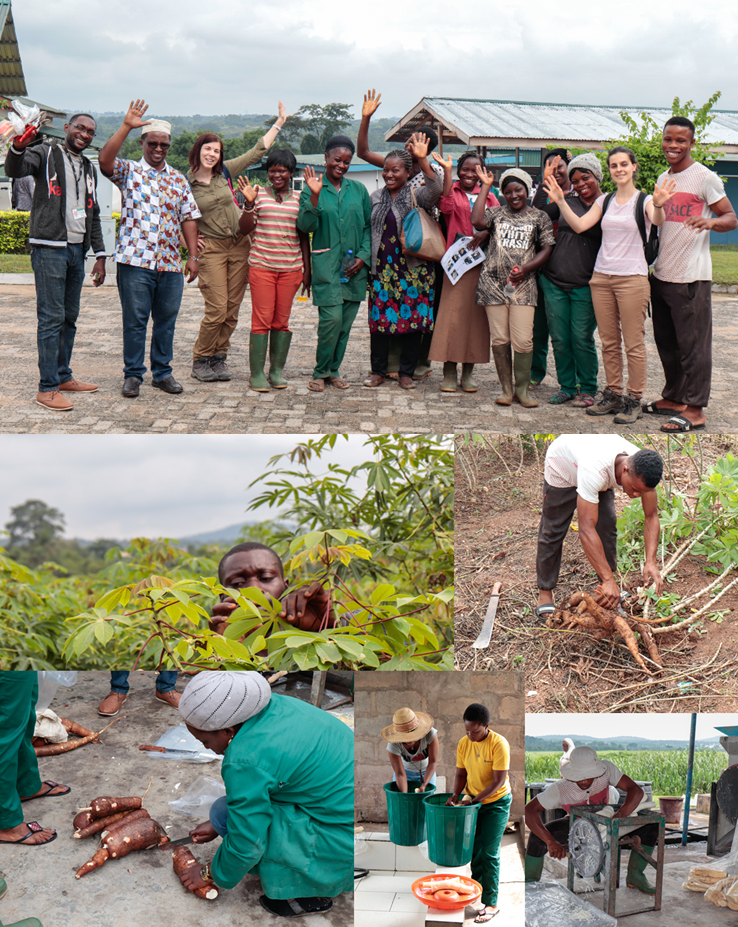 The starchy, tuberous root of cassava is hugely important as a food crop for millions of people worldwide. Both, the „NextGen Cassava“ (NextGen) and „Cassava Source-Sink“ (CASS) project aim to select robust, high-yielding cassava plants for African small-holder farmers. The high analytical power of CASS and the genetic variability and extensive breeding experience provided by NextGen creates great synergy for identifying molecular traits that likely will help cassava research and breeding efforts.
The starchy, tuberous root of cassava is hugely important as a food crop for millions of people worldwide. Both, the „NextGen Cassava“ (NextGen) and „Cassava Source-Sink“ (CASS) project aim to select robust, high-yielding cassava plants for African small-holder farmers. The high analytical power of CASS and the genetic variability and extensive breeding experience provided by NextGen creates great synergy for identifying molecular traits that likely will help cassava research and breeding efforts.
Recently, a joint field trial at the International Institute for Tropical Agriculture in Ibadan, Nigeria has been harvested and samples were taken for detailed molecular analysis. Cassava breeder Ismail Rabbi (second from the left) and his team were joined by the CASS scientists Anna Magdalena van Doorn, Laure David (third from the left) and Laise Rosado de Souza (second from the right) for cassava harvesting and sampling. The team harvested a cassava field with over 1000 cassava plants, recorded various data and did a detailed sampling of several tissues from 16 different genotypes for deeper molecular analysis.
Currently, the samples are being processed in Germany and prepared for metabolite measurements. By analyzing contrasting genotypes (for instance high- and low-yielding) we hope to find specific molecular markers for these traits which can help to identify novel and better cassava genotypes.


